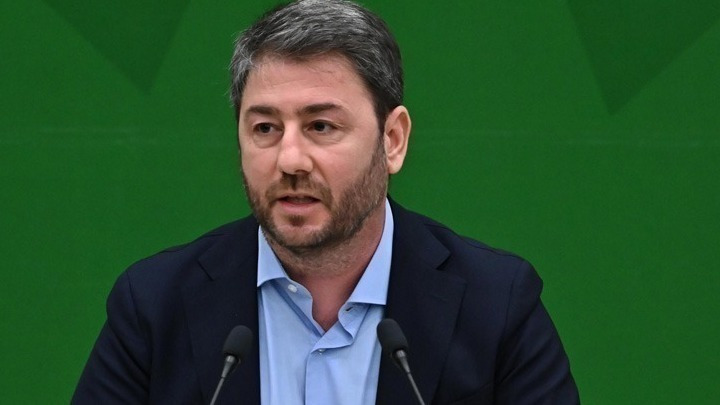Androulakis on OPEKEPE: 'ND and the Mitsotakis government 'have shown themselves unable to live up to society's expectations'

"The Greek people are watching the new major scandal at OPEKEPE in shock. It is a scandal not confined to speculation and indications: it is tangible, documented by the European Public Prosecutor's Office. It sweeps up not only the political figures involved but once against shows the unreliability and corruption of the 'executive' state of New Democracy," main opposition PASOK-KINAL leader Nikos Androulakis commented, in an article in the newspaper "Vima" on Sunday.
Androulakis stressed that the prime minister, Kyriakos Mitsotakis, "can no longer pretend to know nothing," and noted that he has repeatedly raised the issue of mismanagement in Parliament in the last two years, as well as in interviews. "At that time, Mr. Mitsotakis took refuge behind 'shadows' whose existence he admitted, without further clarification," he added.
"The government of New Democracy and Kyriakos Mitsotakis, personally, have shown themselves unable to live up to society's expectations. The Greek people will no longer put up with paying the price for corruption by a government that treats them with contempt. They deserve a better prospect in life," he said.
He also pointed out that, at the time when OPEKEPE was placed under European supervision, "the extent of their arrogance was so great that the then minister Lefteris Avgenakis accused me of 'a peculiar insistence on OPEKEPE' and of 'not wearing the Team Greece jersey'. Today his name figures in the case file."
Noting that the fine of 415 million euros was "defamatory" for Greece, Androulakis stressed that OPEKEPE had had six different presidents in as many years of New Democracy's governance and said this could only be described as "monumental mismanagement and the epitome of partisan looting", with OPEKEPE serving as "a mechanism for parcelling out money with political coverage".
He said the resignations of cabinet members and a general secretary were "an indication that the problem goes beyond the individual persons and touches on the governmental core of the so-called 'executive' state." This was deeply disappointing to the Greek people, he added, who expected that after the economic crisis and their huge sacrifices, the foundations would laid down for a state based on accountability and merit.
Instead, Androulakis said, the government had delivered a deeply clientelist state mired in corruption, with 'excellence' as a ruse for a lack of meritocracy and partisan favours, while the 'return to normality' proved a return to the worst practices of the past, which had led the country to the crisis.

